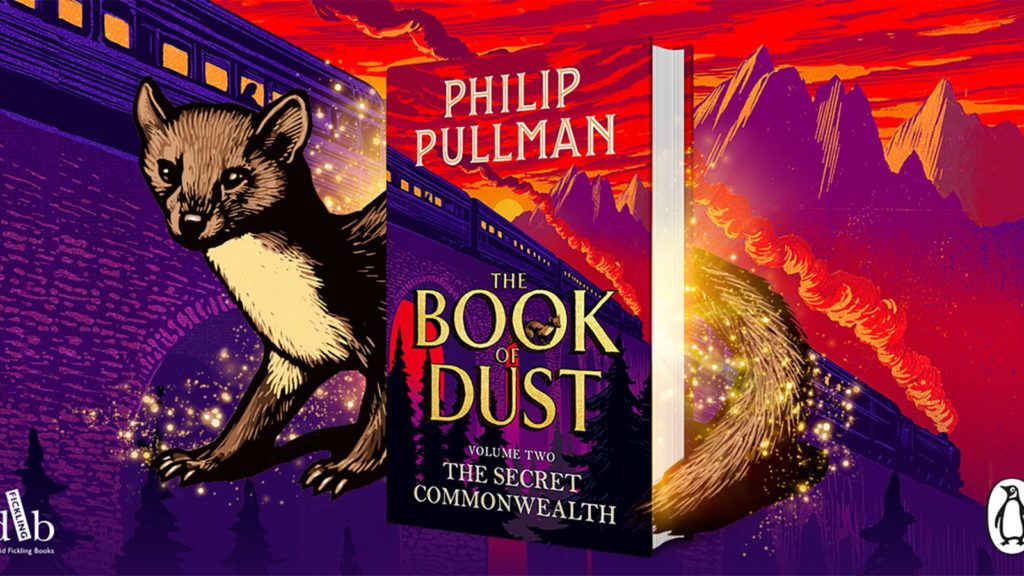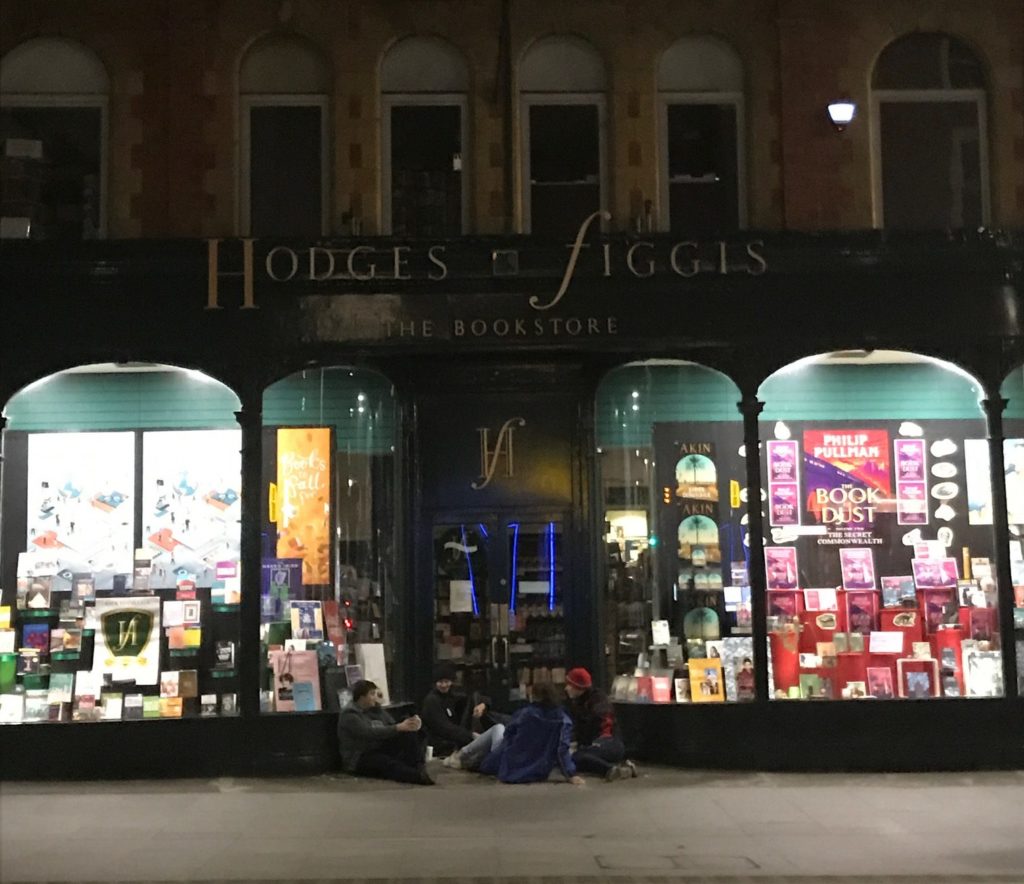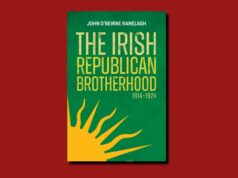A story that will resonate with Ireland and the world
Reading the latest from Philip Pullman

Today, Thursday October 3, sees one of the most hotly anticipated new releases of both the global and the Irish publishing calendar, with the release of Philip Pullman’s The Secret Commonwealth. Hodges Figgis, for one, will be marking the occasion by a special early opening, with their doors thrown wide at 8.30am due to demand.

Books Ireland is delighted to be among those lucky souls who have had the opportunity to see this work in advance, as Nick Maxwell discusses here.
* * *
On the basis of his first trilogy of novels, His Dark Materials, Philip Pullman is considered by many right-wing Christians to be related to the anti-Christ. That series is considered by some to fall into the childrens/young adult category but to my mind they are really part bildungsroman and part treatise on consciousness, spiritualty, love, sensuality and humanity. I am sure that those who take the anti-Christ position will only be confirmed in their view on reading the first two volumes in the succeeding and related trilogy, The Book of Dust.
Those familiar with the earlier volumes will be aware of the travails and travels of the young female protagonist Lyra and her daemon, Pan. They inhabitant an alternative world and Lyra, since birth, has led a remarkable, if charmed life, escaping the sinister, predatory clutches of the Magisterium (a thinly veiled Catholic Church) and fulfilling an existential, redemptive mission for the world.
Published on 3 October 2019 the latest volume (The Secret Commonwealth) takes a much darker turn if that is possible. (The author joked recently that it should be called His Darker Materials.) The relationship between Lyra and Pantalaimon her daemon, has reached breaking point brought on by her academic interests; almost like a failing marriage where there is still love but bitterness and a failure to communicate. For this and other reasons she is cast out from all that gives her life stability. So, a difficult pilgrimage sends her across Europe, to attempt a resolution with Pan, with the support of the marginalised and of a shadowy and, soon to be unofficial, organisation (‘Oakley Street’) which works hard to preserve and protect her from the very sinister grasp of the Magisterium. This mission is complicated, as in previous volumes, with the obsession of that body with the essence of life tied up in the concept known as ‘Dust’.
Throughout Lyra struggles to come to terms with difficult concepts that are central to her being and indeed of humanity. Murder, mayhem, attempted rape, institutional and individual violence and the brutality of the power hungry make this a difficult and challenging read, but like her ‘Oakley Street’ protectors the reader (or this one anyway) cannot abandon Lyra and is carried along with the alarming vicissitudes of her trials and her quest.
The Irish reader will be gripped by a familiar sense of outrage at the depiction of the Magisterium and its grip on the ‘Christian’ world of this novel. It is not too much of a stretch to superimpose its behaviour onto an Irish and worldwide church that flourished for much of the 20th century. The book also has a timely and resonant take on migration, race and identity.
I was exhausted by the end of this book, Pullman is a skillful writer whose work does not suffer in comparison to the great dystopian classics. Coupled with the earlier works it is a major achievement. And there is one more to come.
The Secret Commonwealth. The Book of Dust, Volume Two by Philip Pullman is published by David Fickling Books in association with Penguin Random House UK. ISBN 9780553510669
—
Nick Maxwell, a publisher for more than 30 years, is considering retirement, but will not be parted from his daemon.











